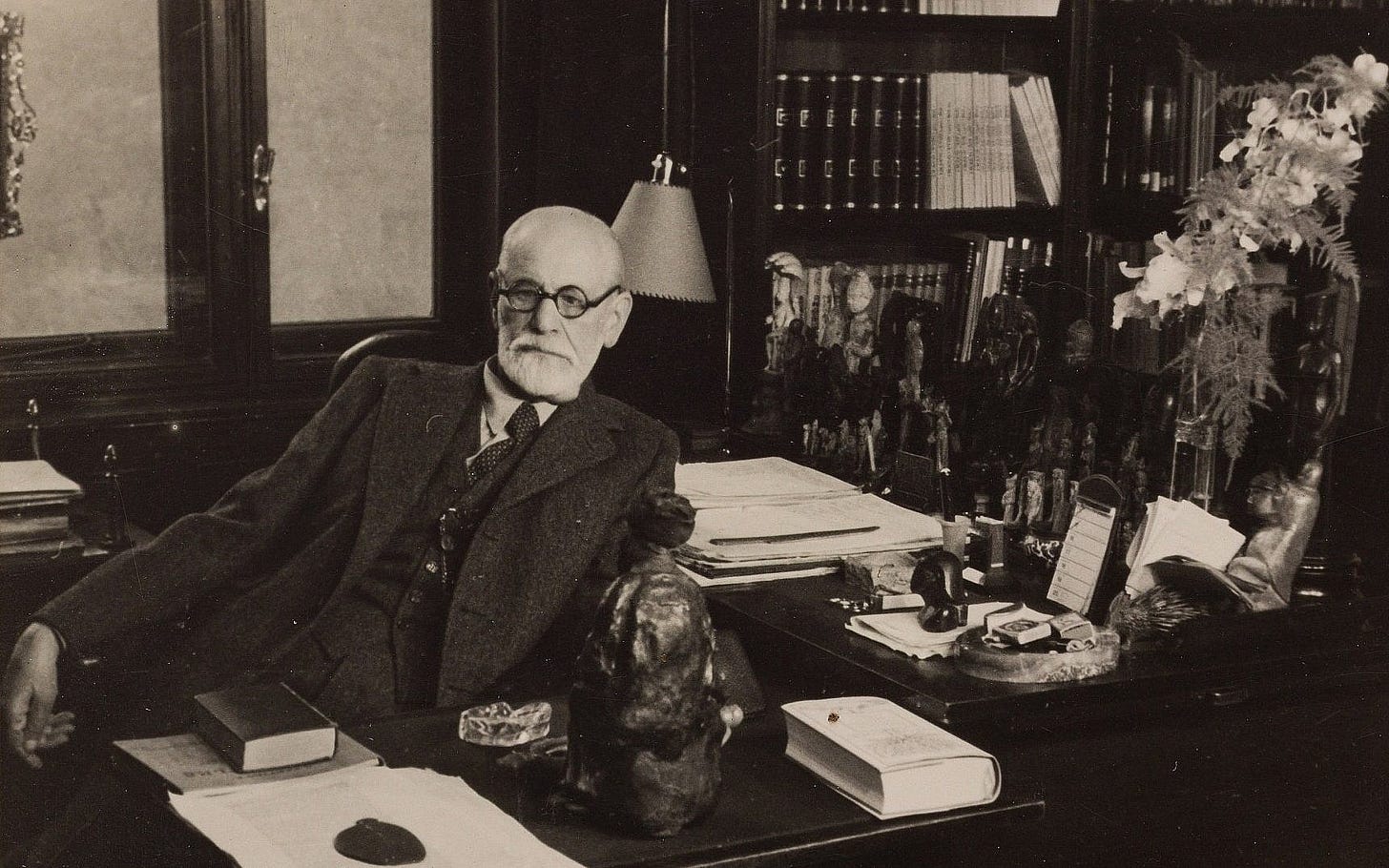"Psychoanalysis can help us dream of things outside of capitalism."
[Free version] On the radical potential of (good) therapy.
THIS IS A FREE VERSION OF A PAID POST. TO READ THE REST, SUBSCRIBE
Britt Edelen is a PhD student at Duke University in the Department of English, with a focus on psychoanalysis. He talked to me about the radical uses of psychoanalysis, and how it can help us envision a completely different world.
[This as-told-to has been edited and condensed]
I’d read a lot of Freud in undergrad and got really interested in his theory of self. It felt so universal—you could apply it to everything and figure out what’s going on. It felt like studying him answered a lot of questions not only about literature and aesthetics and art, but about being alive and making your way through the world. One of the things I enjoy about Freudian psychoanalysis is that there’s no such thing as normal—what we consider normal is actually part of a psychotic or neurotic psychology, and we all exhibit psychotic or neurotic symptoms to a certain extent, and in that sense everything is up for analysis.
We don’t just have to look at extreme cases to understand our minds and behaviors. Everything we do, everything we think, every time we misspeak, it all has meaning. I love that.
I also really love the idea that there’s no cure. You just keep going. When I’ve done cognitive behavioral therapy, I’ve found that the idea of a cure turned therapy boring—the idea that there’s a stopping point, it limits how deep you can go.
I first went to therapy in college — through the school’s counseling services center. And they had a session limit, and after that, they suggested I see a therapist privately off-campus. It was very CBT-focused. I talked about depression and anxiety, and the answer was always, “just change how you think about things, replace your thoughts,” or, “just fill out this workbook.” But that didn’t allow me to make connections to the world, and understand the root of my issues. What I wanted wasn’t just to feel better, I wanted to understand myself, my relation to the world.
CBT does a lot of behavioral analysis, and kind of posits that you can be logical and reasonable about all of your actions. Psychoanalysis is less interested in the idea that we should be rational actors. It’s more interested in the unconscious reasons we do things that we’re not usually aware of. Psychoanalysis is a place where you can go where you don’t have to put your life inside the rhetoric of logic. That’s incredibly freeing. When they don’t give you an answer, a diagnosis, and just force you to sit with your words and feelings, you’re forced to go deeper into yourself.
Doing psychoanalysis allowed me to realize that I did have a problem, but that that problem wasn’t something that was wrong with just me as an individual—it was societal, it was structural. Instead of seeing myself as someone who was broken, or who had a chemical imbalance, I was able to see myself as someone with a history of traumas, as someone who was grappling with life under capitalism, life in the labor market. It allowed me to see that my problems were similar to other people’s problems. And it helped me realize that I would never be done working on myself, that this would be a constant process of figuring out my relationship to the world.
CBT is perfectly suited to capitalism because it doesn’t ask you to challenge your place in the world or how you think of things, it just asks you to modify your response to those things, control your reactions to stressors. It individualizes these giant systemic issues. Whereas psychoanalysis at its best allows you to see the problem at the societal level.
……
THIS IS A FREE VERSION OF A PAID POST. TO READ THE REST, SUBSCRIBE


